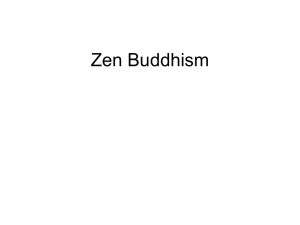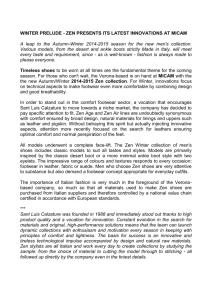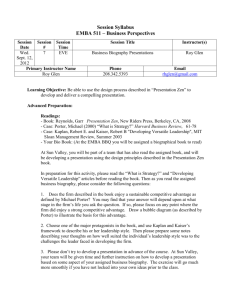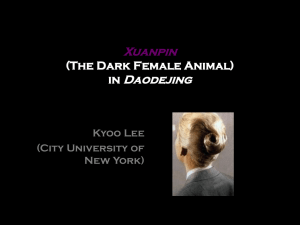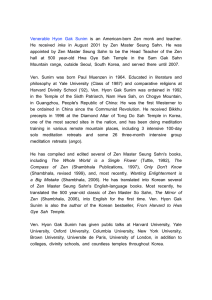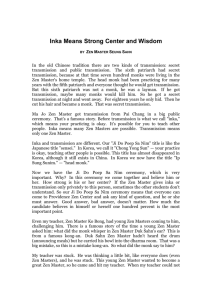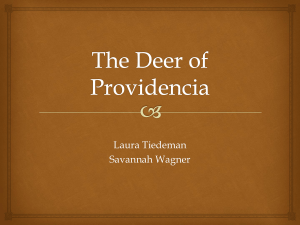NPD 3000 Research Essay 2015
advertisement
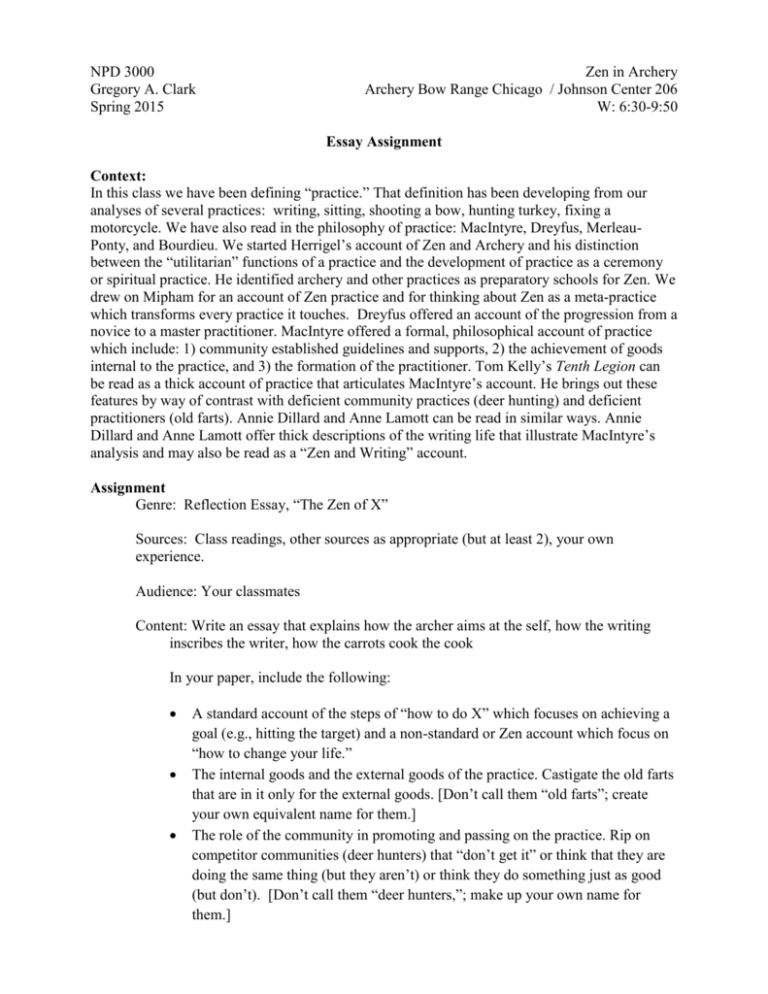
NPD 3000 Gregory A. Clark Spring 2015 Zen in Archery Archery Bow Range Chicago / Johnson Center 206 W: 6:30-9:50 Essay Assignment Context: In this class we have been defining “practice.” That definition has been developing from our analyses of several practices: writing, sitting, shooting a bow, hunting turkey, fixing a motorcycle. We have also read in the philosophy of practice: MacIntyre, Dreyfus, MerleauPonty, and Bourdieu. We started Herrigel’s account of Zen and Archery and his distinction between the “utilitarian” functions of a practice and the development of practice as a ceremony or spiritual practice. He identified archery and other practices as preparatory schools for Zen. We drew on Mipham for an account of Zen practice and for thinking about Zen as a meta-practice which transforms every practice it touches. Dreyfus offered an account of the progression from a novice to a master practitioner. MacIntyre offered a formal, philosophical account of practice which include: 1) community established guidelines and supports, 2) the achievement of goods internal to the practice, and 3) the formation of the practitioner. Tom Kelly’s Tenth Legion can be read as a thick account of practice that articulates MacIntyre’s account. He brings out these features by way of contrast with deficient community practices (deer hunting) and deficient practitioners (old farts). Annie Dillard and Anne Lamott can be read in similar ways. Annie Dillard and Anne Lamott offer thick descriptions of the writing life that illustrate MacIntyre’s analysis and may also be read as a “Zen and Writing” account. Assignment Genre: Reflection Essay, “The Zen of X” Sources: Class readings, other sources as appropriate (but at least 2), your own experience. Audience: Your classmates Content: Write an essay that explains how the archer aims at the self, how the writing inscribes the writer, how the carrots cook the cook In your paper, include the following: A standard account of the steps of “how to do X” which focuses on achieving a goal (e.g., hitting the target) and a non-standard or Zen account which focus on “how to change your life.” The internal goods and the external goods of the practice. Castigate the old farts that are in it only for the external goods. [Don’t call them “old farts”; create your own equivalent name for them.] The role of the community in promoting and passing on the practice. Rip on competitor communities (deer hunters) that “don’t get it” or think that they are doing the same thing (but they aren’t) or think they do something just as good (but don’t). [Don’t call them “deer hunters,”; make up your own name for them.] Illustrations of the kind of people who perform the action well: Show what virtues people develop when they pursue performing the action well. Show what a “mindful” practitioner looks like. If this practice points toward the good life for humans, what does that life look like? Will your practice be available in heaven? Write with flair and spunk. The bullet points above are not an outline. They are not a series of steps to reach your goal. You don’t have to use the labels (e.g., “deer hunters” etc.) but you should use the categories to which those labels point us. Draw the analysis out of your stories. Goals: In this assignment, we hope to accomplish the following goals: Produce a reflection paper on a practice. Practice the process of writing by revision through multiple drafts. Realize some internal goods of writing. Format: 15 pages, printed double-spaced, with reasonable margins (1 in.), no additional spacing between paragraphs, no extra pictorial embellishments, 12 pt Times Roman font. Use Headings to name different sections. Late Papers: The final grade of this paper will be reduced for late drafts. Prompt distributed Bibliography due Draft for peer editing draft due (work on responding to the prompt) Draft for conference with professor due (work on remaining issues and on clarity and beauty) Final draft due March 26 April 08 April 15 May 6 What does a well-written essay look like? 1. 2. 3. 4. 5. Draw your reader in. Don’t give your reader a pile of general crap that narrows down to a thesis. This is not a Wikipedia article. Tell a story, introduce a theme. Your essay is about your practice. When you tell stories, you will most likely be in them. but the stories should not really be about you. Rather, you and your story should be about your practice. Don’t lose your reader. Use headings to help your reader know where one section ends, where another begins, and what the general theme of the section is. Spend a little time, but not much, describing the steps of the practice. Your real goal is to get to the Zen aspect, to describe the “how-to-Zen.” Write with flair and spunk. Essay Checklist CRITERIA WRITING Author does not use metaphors, similes, or other figures of speech which you are used to seeing in print. Author does not use a long word where a short one will do. Author cuts out words that it is possible to cut out. [Omit needless words] Author does not use the passive where they can use the active. [Use the active voice] Author does not use a foreign phrase, a scientific word, or a jargon word where there is an everyday English equivalent. PROMPT A standard account of the steps of “how to do X” which focuses on achieving a goal (e.g., hitting the target) and a non-standard or Zen account which focus on “how to change your life.” The internal goods and the external goods of the practice. Castigate the old farts that are in it only for the external goods. The role of the community in promoting and passing on the practice. Rip on competitor communities (deer hunters) that “don’t get it” or think that they are doing the same thing (but they aren’t) or think they do something just as good (but don’t). Illustrations of the kind of people who perform the action well: Show what virtues people develop when they pursue performing the action well. Show what a “mindful” practitioner looks like. If your practice is training in a vision of the good life for humans, what is the good life for human implied by your practice? Or, will people perform your practice in heaven? LOGISTICS: All drafts are included in portfolio give evidence of the following: ∙ turned in on time ∙ turned in through turnitin.com ∙ worked cooperatively in conferences
